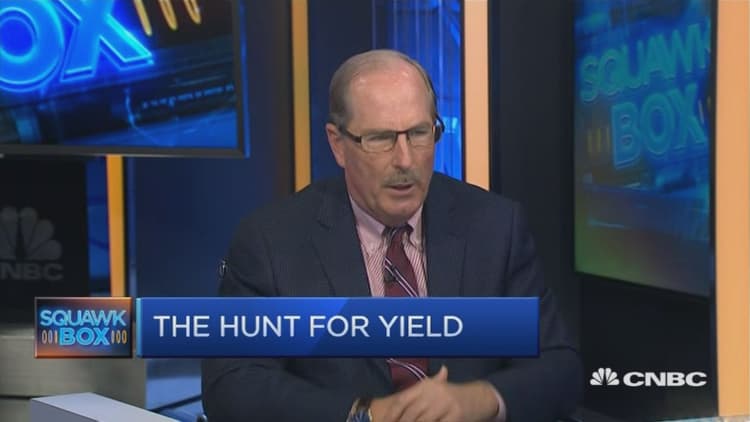
After years of languishing, maybe 2017 finally will be the year that active managers reassert their place in the investment community.
As a whole, stock-picking fund managers got off to a solid start this year, with 52 percent of fundamental equity managers beating their Russell 1000 index benchmarks, according to research from JPMorgan Chase. The 50 percent barrier for a single quarter has been broken only a handful of times since the bull market began in March 2009.
The stronger performance comes amid a decline in the tendency of stocks to move up and down together, a trend referred to as correlation. Lower correlations limit opportunities for active managers to find stocks that are mispriced and thus more likely to exceed broader market gains.
In addition, the level of dispersion, or the difference in returns among broad sectors within the market, also has been on the upswing. The same principle applies — greater disparity in sectors provides active managers better opportunities to find cheap areas in which to invest.
Indeed, it was a particularly strong quarter for value managers, who search for companies and sectors that may be depressed but are expected to break out. Strategies focused on value showed a 67 percent outperformance rate.
To be sure, the news wasn't as good elsewhere.
Growth managers had just a 41 percent beat rate. Small-cap managers generally speaking also had a weak quarter, with just 34 percent topping the . However, the trend particularly in large-cap is moving in the right direction.
Investors, though, are continuing to flock from active funds.
The first quarter saw a record amount of money pile into passive strategies, with exchange-traded funds pulling in a net $132 billion in fresh investor cash, according to the State Street Global Advisors. Equity, or stock-based, ETFs drew the greatest share, hauling in $96.6 billion.
ETFs trace indexes such as the or broad sectors and don't employ professional managers to pick individual stocks. They also generally carry much lower fees than mutual funds and trade like stocks.
JPMorgan analysts estimate that more than one in three — 35 percent — investor dollars now is in the hands of passive management, up from 15 percent a decade ago.
In terms of sectors, investors favored "Trump trade" areas that would benefit from reflation that would come with President Donald Trump's pro-growth agenda getting implemented. Materials, financials and energy attracted the most investor cash, while the defensive yield-generating utilities sector was the only one to see outflows, JPMorgan said.


